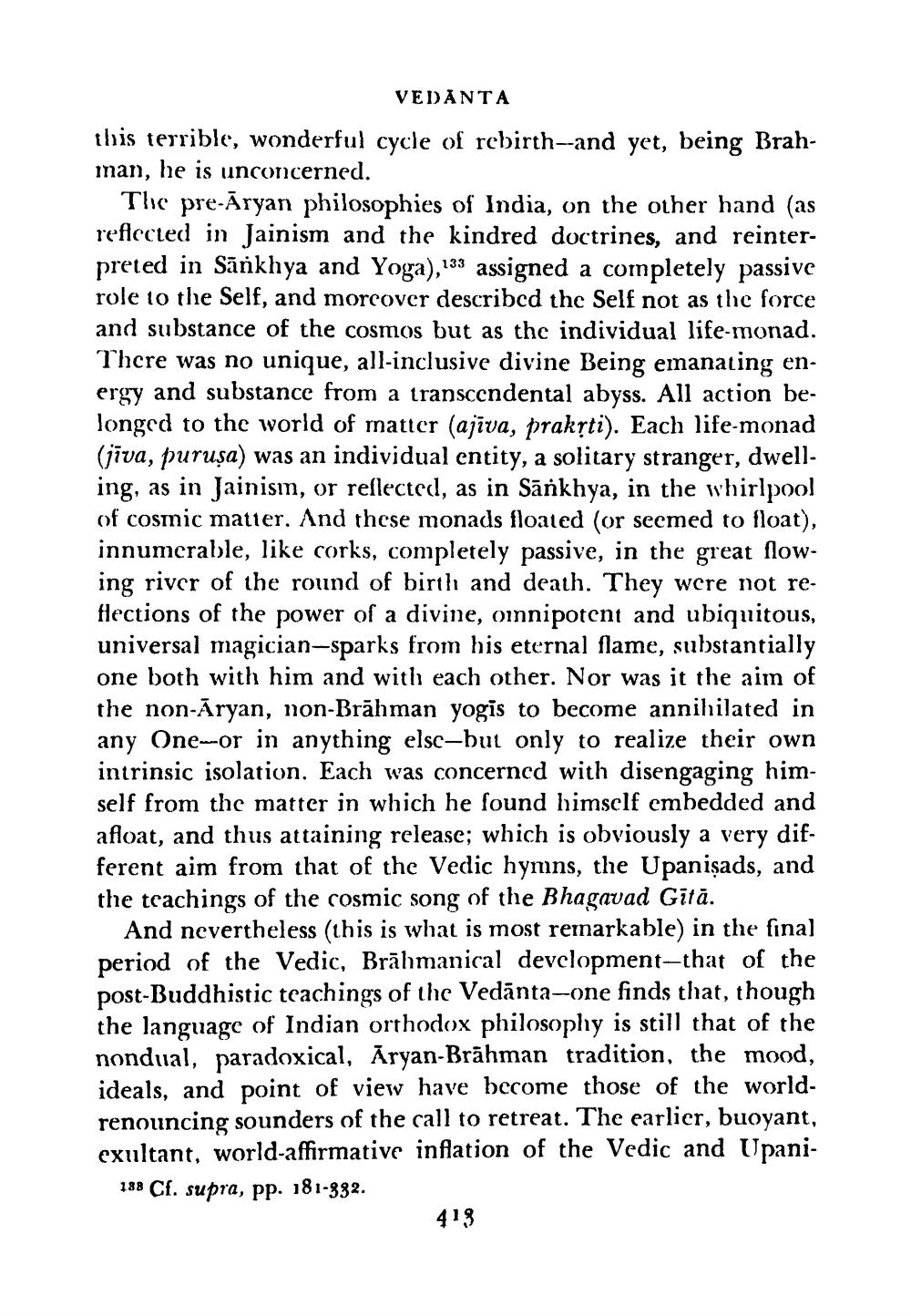________________
VEDANTA
this terrible, wonderful cycle of rebirth-and yet, being Brahman, he is unconcerned.
The pre-Aryan philosophies of India, on the other hand (as reflected in Jainism and the kindred doctrines, and reinterpreted in Sānkhya and Yoga),133 assigned a completely passive role to the Self, and morcover described the Self not as the force and substance of the cosmos but as the individual life-monad. There was no unique, all-inclusive divine Being emanating energy and substance from a transcendental abyss. All action belonged to the world of rnatier (ajīva, prakrti). Each life-monad (jiva, puruṣa) was an individual entity, a solitary stranger, dwelling, as in Jainism, or rellected, as in Sankhya, in the whirlpool of cosmnic matier. And these monads floated (or seemed to float), innumerable, like corks, completely passive, in the great flowing river of the round of birth and death. They were not reflections of the power of a divine, omnipotent and ubiquitous, universal magician-sparks from his eternal flame, substantially one both with him and with each other. Nor was it the aim of the non-Aryan, non-Brāhman yogis to become annihilated in any One-or in anything else-but only to realize their own intrinsic isolation. Each was concerned with disengaging himself from the matter in which he found himself embedded and afloat, and thus attaining release; which is obviously a very different aim from that of the Vedic hymns, the Upanișads, and the teachings of the cosmic song of the Bhagavad Gitā.
And nevertheless (this is what is most remarkable) in the final period of the Vedic, Brāhmanical development-that of the post-Buddhistic teachings of the Vedānta-one finds that, though the language of Indian orthodox philosophy is still that of the nondual, paradoxical, Āryan-Brāhman tradition, the mood, ideals, and point of view have become those of the worldrenouncing sounders of the call to retreat. The earlier, buoyant, exultant, world-affirmative inflation of the Vedic and Upani188 Cf. supra, pp. 181-332.
413




